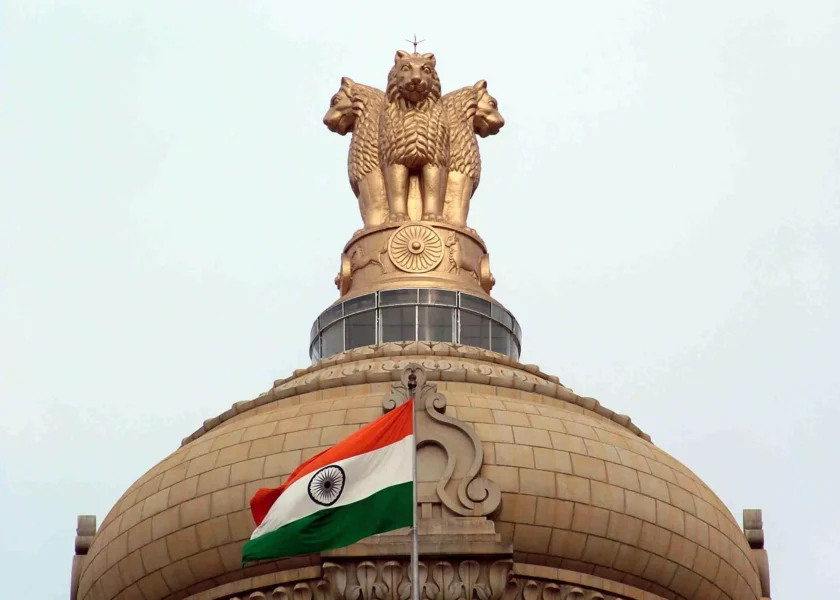
Solution through decentralisation
Urban local bodies need to be equipped with adequate funds, functions and functionaries to ensure robust urban governance and solve regional administrative problems
Most of us must have been shocked to see the images of the flooded Bangalore city, which is the IT capital of India, and houses the officers of all the top multinational corporations — the CEOs of which live in tasteful villas in various posh localities. It is astonishing to see that a city which we normally associate with efficiency and glamour is facing such a situation. The problem of the stormwater drainage system not working properly is like a chronic disease afflicting most cities of India. It reflects poorly on the creation and maintenance of essential infrastructure in cities. Urbanisation is on an increase with 50 per cent of India likely to live in urban areas by 2050. The cities will have to act like engines of growth to make India a developed nation by 2047. On the contrary, even the best cities are facing issues of poor sanitation, lacking water supply, faulty sewerage system, traffic mismanagement, unauthorised slums, poor drainage, and degradation of the environment. We see Mumbai getting submerged each year. As Principal Secretary, Urban Development, I witnessed these problems plaguing most of the cities of Uttar Pradesh as well.
The development story of India has been one where there has always been a focus on schemes related to rural India, as agriculture has been the main sector, and majority of the population still lives in rural areas. In UP, for instance, only 22 per cent of the population lives in urban areas and 65 per cent of the people still subsist on agriculture. However, lately, a realisation has dawned upon policymakers that there is an urgent need to talk about the development of the urban sector. In 2007, the Jawaharlal Nehru National Urban Renewal Mission (JNNURM) was started to provide funds for development of essential infrastructure in cities. This was followed by the Atal Mission for Rejuvenation and Urban Transformation (AMRUT) and the smart city mission. There is no doubt that a reasonable amount of funds has been made available by the Central and state governments to selected cities under these missions but, still, there is a wide gap between the requirement and the availability of resources. More than the resources, it is the important reforms that are required in urban governance to enable Indian cities to absorb the funds given to them, and utilise them in the desired manner. The main concern of urban areas has been the generation of urban finance and effective urban governance.
Cities contribute the most to income tax, GST and other state tax collections, but all of this goes to the Central and state governments. Seventy per cent of the GDP of the country comes from urban areas, reflecting their crucial role in the growth of the economy. A major reform has been the setting up of state Finance Commissions that decide on what percentage of state taxes should be devolved to urban local bodies. In UP, this commission has been in operation but only seven per cent of the state taxes are transferred to urban local bodies. There is a demand from urban local bodies for a greater devolution of funds but the state governments have their own priorities, and are not able to transfer sufficient resources to them. A large part of the resources of urban local bodies is utilised in payment of salaries, leaving very little for developmental works. There is a definite case for a larger transfer of resources accruing from state taxes to these urban local bodies. However, it is imperative that urban local bodies should also generate their own revenue. The property tax has an immense unexplored potential but, due to political reasons, elected corporators are not willing to rationalise the assessment of the properties and, as such, this source of revenue remains grossly underutilised. Moreover, there is a lot of potential for leveraging the land with the municipal bodies for raising resources, and also for issuance of municipal bonds, which has been successfully attempted by better-managed local bodies. The stark reality is that the majority of urban local bodies face a serious shortage of funds and, resultantly, even basic urban infrastructure facilities are not created or maintained.
Funds apart, a very important but ignored issue has been that of urban governance. For example, the flooding of the streets that has happened in Bangalore, and is a regular feature of most cities, is often the result of the existing drains being clogged with waste materials and silt. The annual cleaning of drains is done in an inefficient manner and a lot of corruption is involved in this. Sanitation in urban local bodies in many states is looked after, for some strange reasons, by health department doctors. This is not their area of specialisation. Every urban local body requires a special cadre of people trained in solid and liquid waste management. Then, the level of engineers associated with these bodies is not of high quality. Better recruitment and in-service training are required to equip them to construct quality infrastructure. As Municipal Commissioner of Allahabad (now Prayagraj), I was shocked when I found that the gradient of an under-construction drain was being constructed wrongly — leading to a situation where water would accumulate rather than flow. Going further, I feel that every city should have a cadre of city managers, specially recruited and trained for this purpose. For larger urban local bodies, a senior IAS officer should be posted as municipal commissioner.
Funds, functions and functionaries need to be transferred to urban local bodies by the state governments if genuine decentralisation is to take place. The 74th amendment to the constitution has not been implemented in letter and spirit by most state governments, as neither the officers nor the political representatives are willing to share power with local bodies. The mayors of municipal corporations from across the country have this grievance that their posts are merely ceremonial, with the real executive powers vested with the officers. This is exactly the opposite of what prevails in most of the countries, and is not a happy state of affairs. Local issues are best solved by local governments. If the issues of urban governance are resolved on a priority basis, then better generation and management of resources will also be possible, and cities will get the kind of urban infrastructure they deserve.
The writer is an ex-Chief Secretary, Govt of Uttar Pradesh. Views expressed are personal




